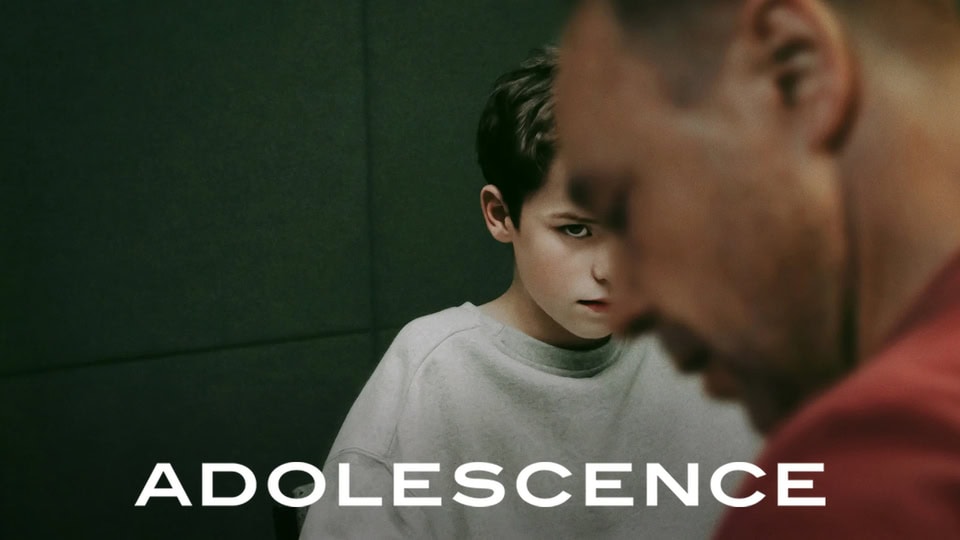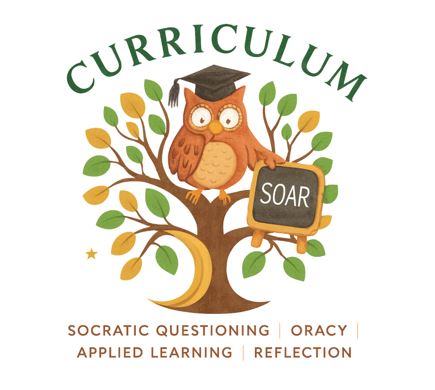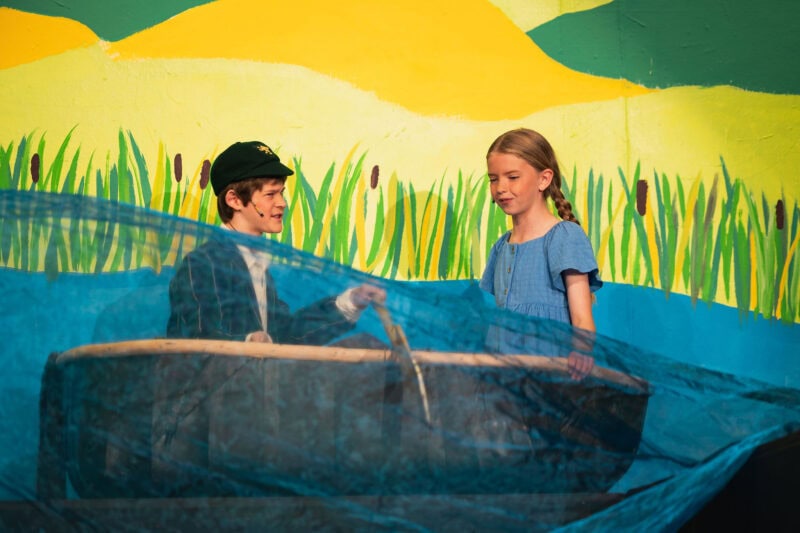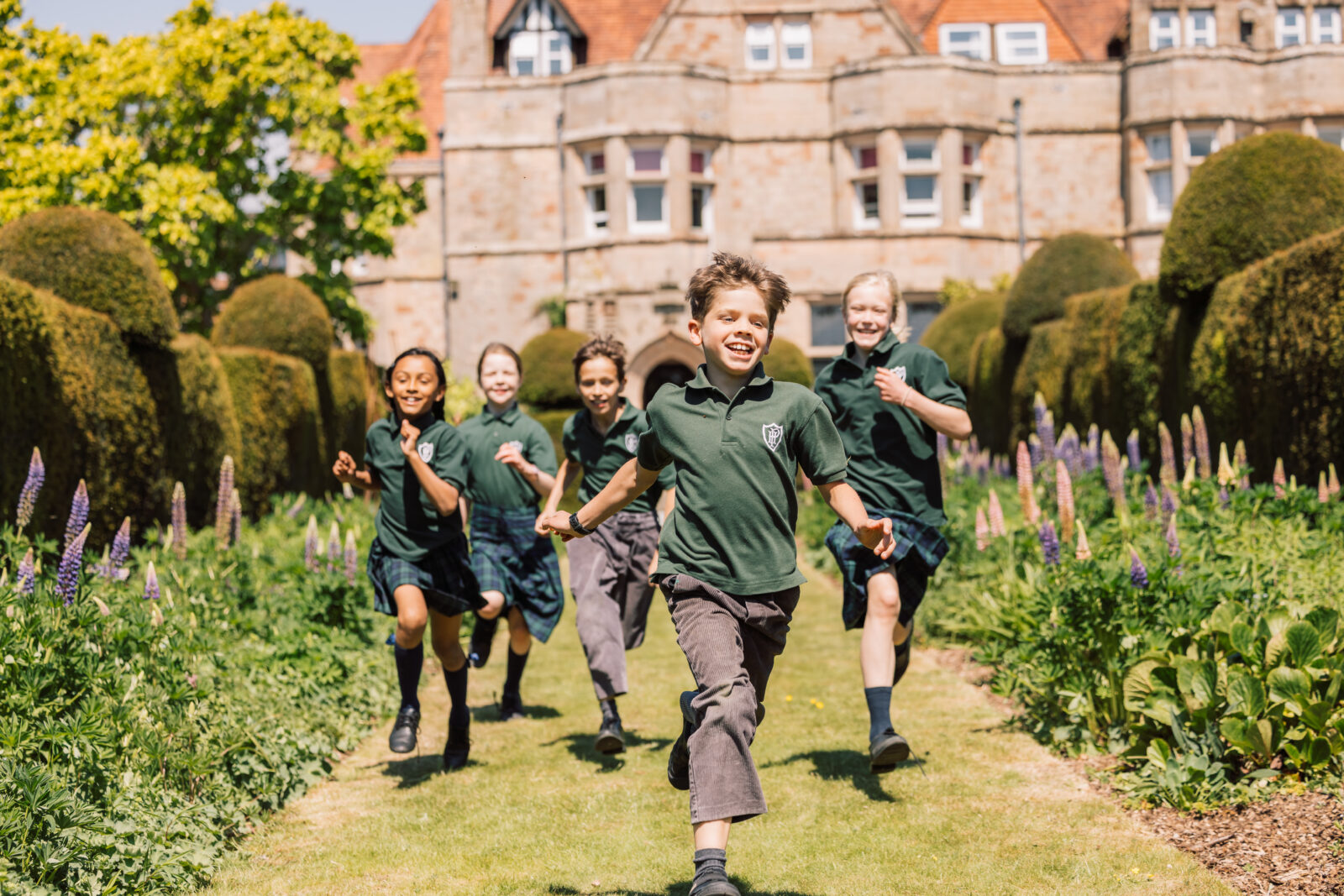We are organising a symposium for parents next term on the reality of the online world and watching the first episode of Adolescence Cat and I have reflected on this.
In the opening scene, armed police burst through the front door of a home in a quiet suburban street. The unsuspected family are awoken, and, to their disbelief, their 13-year-old son is arrested for the murder of a teenage girl the previous night. The horror unfolds as he is taken to the police station, processed, provided a solicitor, questioned, and presented with CCTV which clearly shows this seemingly innocent young boy attacking a girl. As the parents of three young boys, our horror was mirrored by reviews in press, hailing it was “one of the best and most socially urgent shows of the year” (The Times). It is the rawness of the footage, shot almost in real time, as the parents move from the absolute denial (and rightly so) to disbelief that their son, who is the age where Lego should dominate his life, could be capable of something so horrific. As The Times reports, “it is emblematic of the disconnect between the image parents can have of their children’s lives and the reality of what they are getting up to in the segregated world of teenage online discourse”. For what follows is a deep exploration into this young boy’s online world, where misogyny and Andrew Tate style influence rocks his world and leads him down a totally unnoticed path of disruption. It goes without saying that this series is both gripping and clearly a salient response to a growing issue, if not silent crisis, affecting society.
Relating to normalising sexualised content and violence, the statistics speak for themselves, and a recent warning from the NSPCC put the reality of the situation in stark focus by observing around 20% of eleven-year olds have been exposed to extreme pornography. This is amidst continued worry about social media by exasperated teachers, parents and experts in child psychology. In a survey today, 92% of people believe social media should be banned for U16s, with 70% of primary teachers saying they are aware of their pupils using various platforms. In a poll conducted by one of the largest school leader’s union, 25% of school leaders reported they were aware of pupils using social media to view pornography or violent content, whilst one in ten teachers knew of “artificial intelligence-generated deepfake images or audio being used maliciously against other students”.
This does nothing to reassure parents or indeed offer what we need most – help. In this minefield, all remains is a large number of unanswered questions: at what age should I give my child a phone? How on earth do they become influenced? How do I monitor what they are doing? How do I broach respect, consent and the online world with my children? At what age do I do this? My child will never be drawn down this path, so why am I impacted?
These are all relevant questions to ask, and rather than become yet another teacher adding my own views into an increasingly polarised melting pot, herewith three thoughts and a proposal for parents in Shropshire.
Firstly, children haven’t changed. Nearly thirty years ago, when I was on the cusp of adolescence, I remember doing what children do – it is hard wired into their brains at this age. I pulled away from my parents and began to form closer alignment with my peers, and as my friends and schoolmates gained more influence, I am sure I felt that pressure to conform. It was ever thus. What has changed? Cyberspace. In her book, The Cyber Effect, Mary Aiken makes the point that teenage behaviours are now “amplified and escalated in the online world, where peer pressure becomes greater”. Reality becomes blurred.
Secondly, toxic influence is real and it is having an impact. Toxic influence in the real world can be monitored and quickly shut down. Crucially, it is also easy to separate this from reality. In the online world, fantasies, dark misogynistic messaging and extreme violence – in whatever form, can appear to be equally real. It is much harder to separate reality from fantasy: there is no adult to reassure the child, and therefore the illusion of reality becomes more and more engrained.
Thirdly, this is just as much about the reality of the online world – whether this be seemingly innocuous gaming or social media, as it is about the power of role modelling. We cannot control social influencers, people in the public domain or the long, dark shadows of the likes of Andrew Tate, but we can control how we approach this discussion with our children. Thirty-years ago we had open conversations with our children about road safety; twenty years ago, smoking, alcohol and drugs were openly discussed; ten years ago, we lifted the lid on mental health, and more recently gambling. Within the culture of openness, respect and good citizenship in our homes, communities and schools, we have never shied away from responding to deep rooted social issues. Yet, we don’t seem to be able to grip this new danger, which following an unprecedented case of a murder in 2012 of a twelve-year-old, committed by a girl of the same age following online influence, the warning was pretty direct: “this should be a wake up call for society”.
This isn’t a responsibility that should be shouldered by parents, or schools, or indeed communities alone. This is now everyone’s responsibility, not least the time has passed for social media giants to be trusted to deal with this. For Packwood families and parents across the region, we will be holding a symposium next term, where we want to bring parents together to have an open and honest discussion about this topic. We don’t profess to have the answers, but by talking about this, we can at least make a start in addressing what is a very real danger.
The Times concluded that Adolescence “might be the most frightening thing [parents] have ever seen”. I concur. Far more frightening than Agatha Christie, though my mind boggles at what she would make of the online world. What she did say, however, was “one of the luckiest things that can happen to you in life is, I think, to have a happy childhood”. I believe passionately that this childhood takes place in real life, preferably outside, and that for the health of our children, this conversation needs happening now.





